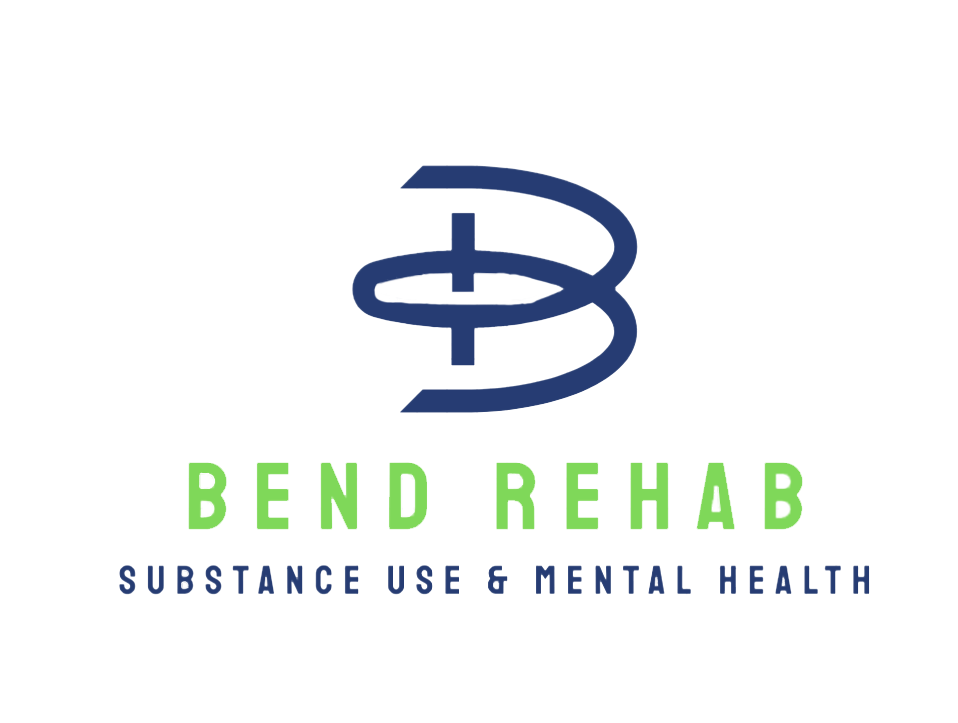What is Detox?
A detox program is a structured and medically supervised process that aims to rid the body of toxic substances, especially those related to substance abuse, such as alcohol, drugs, and certain medications. The primary goal of a detoxification program is to safely manage withdrawal symptoms when someone stops taking drugs or alcohol. These programs are often the first step in the journey towards recovery and can vary in length and intensity depending on the individual’s specific needs and the substance involved.
Detox programs provide a supportive, safe environment where individuals can begin their path to sobriety under the close supervision of healthcare professionals. They offer medical care, counseling, and support services designed to address not just the physical aspects of addiction but also psychological factors contributing to substance use disorders. By helping individuals through the withdrawal process in a controlled setting, detox programs lay the foundation for long-term treatment efforts, including therapy and support groups, which aim to address the root causes of addiction and promote lasting recovery.
How Detox Helps Substance Use
Detoxification, or detox, serves as a critical first step in the journey towards recovery from substance use. It involves the process of allowing the body to rid itself of the substances while managing withdrawal symptoms in a safe and supportive environment. This initial phase is vital because it addresses the physical dependency on substances, setting the groundwork for effective long-term treatment and rehabilitation.
The process helps to stabilize individuals both physically and mentally, preparing them for the therapeutic work that lies ahead. During detox, medical professionals monitor patients closely to mitigate the risks associated with withdrawal, which can range from uncomfortable to life-threatening, depending on the substance and duration of use. This supervised care ensures that individuals are as comfortable as possible and receive immediate attention should any complications arise. We at Bend Rehab have a great detox program in Bend.
How Detox Helps Mental Health
Detox programs play a crucial role in mental health by addressing the physical dependencies on substances that can heavily influence psychological well-being. When an individual undergoes detoxification, the body begins to rid itself of toxins accumulated through substance abuse. This process, while challenging, is a pivotal first step in restoring the brain’s chemical balance. Substance abuse often disrupts the natural production of neurotransmitters like serotonin and dopamine, which are critical for mood regulation and feelings of happiness.
As these toxins are eliminated, the brain starts to heal, leading to improved cognitive functions and emotional stability. Participants may find themselves thinking more clearly and experiencing fewer mood swings as their bodies adjust to functioning without the substance. This clarity is vital for engaging in further therapeutic interventions that address underlying mental issues such as anxiety, depression, or PTSD which often co-occur with substance abuse.
Moreover, our detox program in Bend offers a supportive environment where individuals can focus solely on their recovery without the distractions or triggers present in their daily lives. This support system includes medical professionals who monitor withdrawal symptoms and provide necessary care to ease discomfort. The presence of peers going through similar experiences also fosters a sense of community and understanding that is beneficial for mental health.

Experience Expert Therapy
We provide a range of therapy options to address diverse needs, ensuring everyone receives the care and support they deserve. Our one-on-one therapy sessions offer personalized attention, allowing clients to work closely with a therapist to address their specific challenges, set goals, and pursue personal growth. For those who benefit from shared experiences, our group therapy sessions create a supportive environment to connect with others facing similar struggles, fostering understanding and encouragement. Additionally, we integrate innovative therapies that engage both mind and body, such as cognitive behavioral therapy (CBT) and dialectical behavioral therapy (DBT), offering new pathways for healing and self-expression.

Our Mission
Our Bend Rehab Mission
At Bend Rehab, we focus on more than just addressing addiction symptoms—we strive to heal the entire person, including their mind, body, and spirit. Our holistic approach to addiction treatment makes us stand out among rehabs in Oregon.
FAQ
We've compiled a list of frequently asked questions to provide clarity on the experience and alleviate any remaining fears or anxieties you might have.
A day in addiction rehab is designed to provide a structured and supportive environment focused on physical, mental, and emotional recovery. Mornings typically start early with a healthy breakfast, followed by a schedule of therapy sessions, group activities, and workshops aimed at addressing the underlying causes of addiction. These may include one-on-one counseling, group and family therapy, fitness classes, educational sessions, and recreational activities. Throughout the day, individuals are provided with nutritious meals, time for relaxation, and opportunities for personal growth through journaling or meditation. Evenings often feature peer support meetings or 12-step programs before winding down for the night. Each day is thoughtfully organized to promote a holistic approach to recovery and help individuals build healthier habits and coping strategies.
A detox period generally lasts about five days but can range from three to 10 days. The length of detox varies depending on factors such as the type of substances used, the amount and frequency of use, the duration of use, and the method of administration. These factors help determine the appropriate length of detox for you or your loved one.
When entering addiction treatment, certain items are recommended to support your comfort and well-being. These can include comfortable clothing, personal hygiene products, properly documented prescription medications, and journals or books for reflection. However, some items are prohibited in treatment facilities, such as drugs, alcohol, weapons, or anything that could disrupt the recovery process. It's important to check with your chosen facility beforehand for a detailed list of allowed and restricted items to ensure a smooth transition into treatment.
At Drug Abuse and Addiction, we recognize the strong connection between addiction and mental health challenges. That’s why our treatment centers focus on addressing both addiction and the underlying mental health issues that often accompany it. Our experienced team provides care for conditions such as depression, anxiety, PTSD, and more, taking a holistic approach to recovery that meets both physical and mental health needs. Our admissions team works to match you with the right facility offering comprehensive care tailored to your unique situation. We’re here to guide and support you on your journey to lasting sobriety and better mental health.
Our admissions team at Drug Abuse and Addiction is here to guide you in finding the right treatment center to meet your needs. Choosing a rehab center can feel overwhelming, but we are here to make the process easier. Our compassionate and experienced team understands the complexities of addiction and the importance of personalized care. We take into account your unique circumstances, preferences, and any co-occurring conditions to connect you with a facility that provides customized support. You don’t have to navigate this journey alone – we’re here to support you every step of the way toward lasting recovery.
Seeing someone you care about struggle with addiction can be incredibly difficult and overwhelming. You may feel unsure about how to help them, but the journey starts with an open and honest conversation. Share your concerns, offer your support, and encourage them to seek professional help, while also setting clear boundaries. Researching treatment options and having resources ready can also make a big difference.
It's important to stay patient, understanding, and supportive throughout this process—recovery is a journey that takes time. With the right support and approach, your loved one can work towards a healthier, addiction-free life. Don’t hesitate to reach out to our team at Drug Abuse and Addiction for guidance. We’re here to assist you and your loved one every step of the way on the road to recovery.
No matter how committed you are to your recovery journey or maintaining lifelong sobriety, the risk of relapse is always present. According to the National Institute on Drug Abuse, relapse rates during recovery fall between 40% and 60%. Experiencing a relapse can bring feelings of shame or regret, and you might even consider giving up rather than continuing to fight against the urge to use. While these emotions are natural, they can hinder your path to a drug-free life. Instead, treat relapse as a chance to learn and grow—refine your prevention plan, identify triggers, and understand the reasons behind the setback. This approach can help you rebuild a stronger foundation for recovery.
The first step is determining whether returning to rehab is necessary. If the relapse was an isolated incident and you’re committed to reviewing and adjusting your recovery plan, inpatient treatment might not be required. Inpatient facilities offer hands-on care and consistent monitoring, but if substance use has become a pattern again, it may be essential to reenter a structured program. Warning signs like conversations about substance use, spending time with people who encourage drinking, or using substances to cope suggest a deeper issue that requires immediate attention.
If you do return to treatment after a relapse, the focus should be on successfully transitioning back into daily life. Spending a few months in a sober living environment can be invaluable, as it provides structure and accountability during the critical early stages of recovery. Additionally, setting up an outpatient therapy plan for continued support after rehab can further reduce the risk of relapse.
Begin your journey to recovery and mental wellness today with us at Bend Rehab, where compassionate support and personalized treatment plans pave the way for a healthier, happier you.

Verify Your Insurance With Us
Freeing yourself from Addiction doesn't have to be hard. Take the first Step and begin filling out the form, it's the initial phase in achieving a healthy recovery. We offer the necessary guidance and professional care crucial during the early treatment stages.






